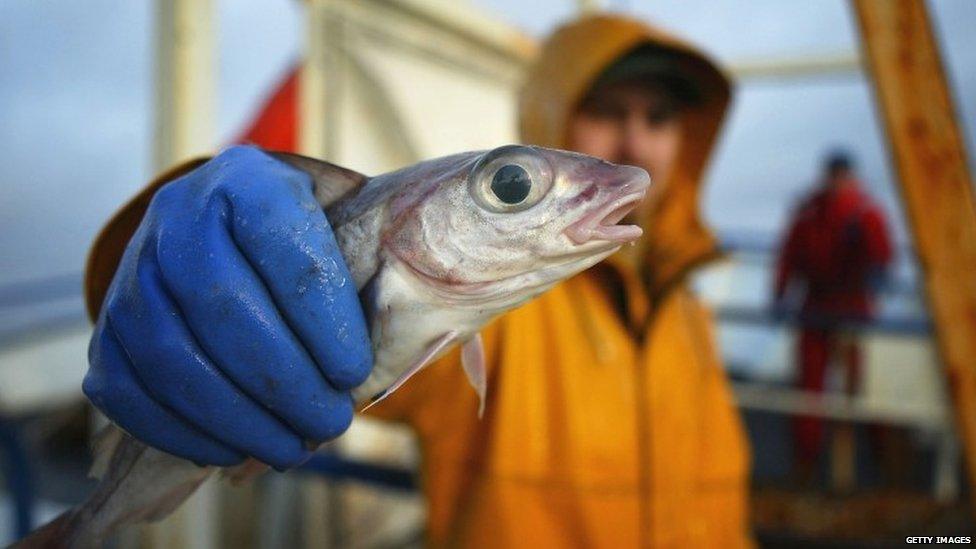Herring fishing faces decline in south Down
- Published
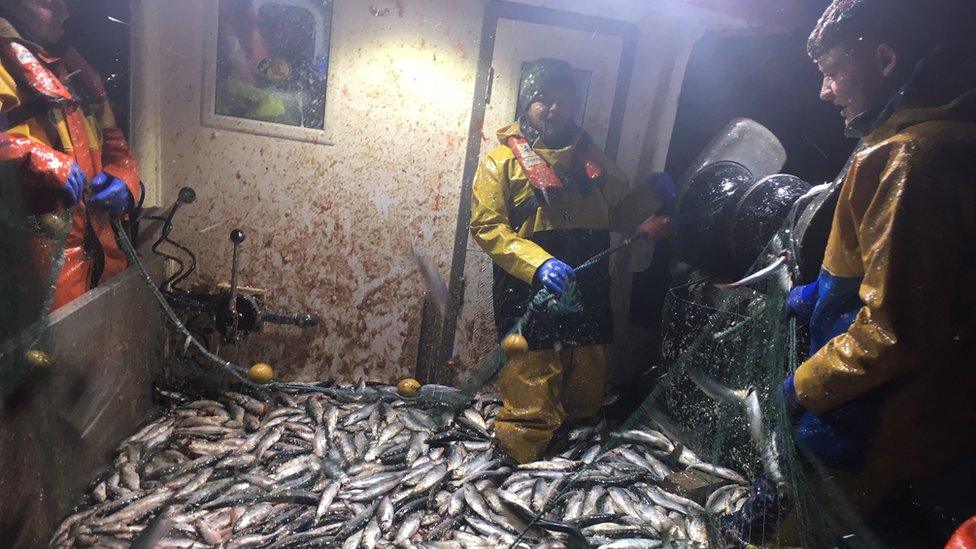
It's herring fishing season in south Down.
Once upon a time there were more than 100 small herring boats fishing out of Kilkeel and Annalong.
The locals say it resembled a village at sea.
Today there are just a handful, in addition to a few larger trawlers.
The skippers put this down to poor prices and small quotas.
'Dying out'
"We get about £200 a tonne and we've a quota of 40 tonnes," says Peter Chambers.
He's the skipper of the Jessie Belle and as an engineer by day and with five men working on his boat he is not fishing to make his fortune.
The quotas, which are set by the EU and allocated by the Department of Agriculture, Environment and Rural Affairs (DAERA) , are annual.
It means the most the crew can make in a year from catching herring is about £8,000 as prices can fluctuate.
"These villages and towns were built on fishing, and herring fishing mostly. It is sad to see the way it has died out the way it has" Peter says.
"We are out here more as a hobby to try and keep the tradition going."
As hobbies go it is part beautiful cruise and part brutally hard work.
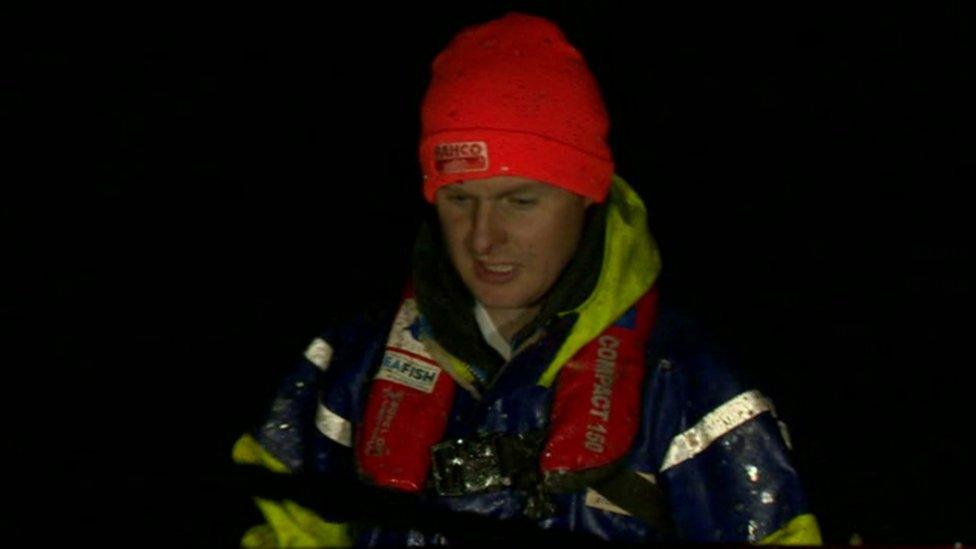
Peter Chambers brings in the herring
On board the Jessie Belle
Our trip begins at 16:00 BST when we get on board the Jessie Belle in Kilkeel harbour.
We spend about an hour searching for where the fish might be.
On one side are the Mourne and Cooley mountains - on the other seemingly endless sea.
Peter is at the wheel monitoring various screens which tell him what is around him and what lies beneath.
At the back of the boat Brian Sloan is watching. He's the elder statesman of the Jessie Belle.
He has been fishing herring for more than 30 years and he knows what he is looking for.
Herring hunting
"You have to look for the signs," he says.
"Once you see the gannets diving at this time of year it is nearly a sure sign of herring. And once you see the seals you know there is herring."
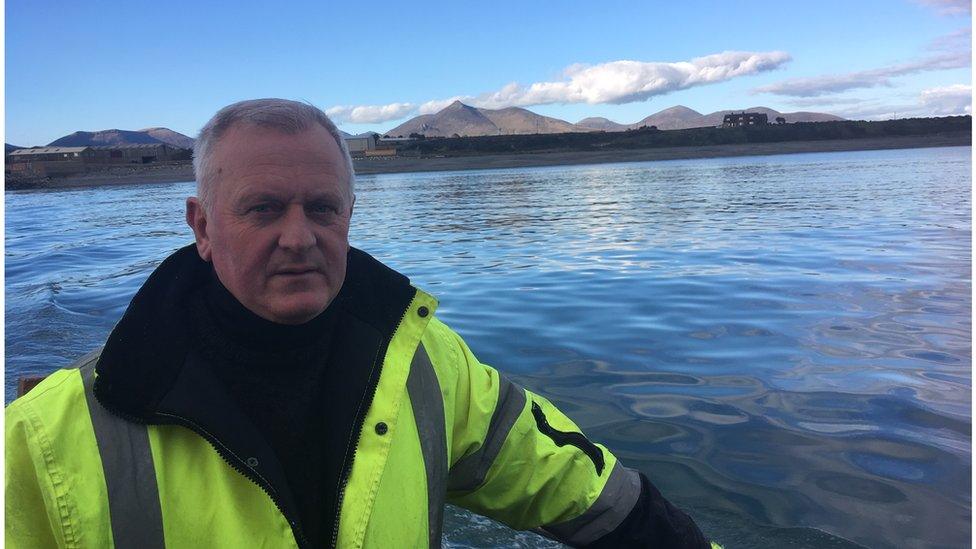
Brian Sloan has been working in the fishing business for over 30 years.
Brian's instincts are correct. Peter's screens show a glut of herring exactly where Brian says they'll be.
But they are too high in the water for the Jessie Belle's net and they won't drop down until after nightfall.
Anchoring up
Peter marks the spot on his computer and we sail into Annalong Harbour.
There to meet us is Trevor Orr of the Harbour Inn. He's prepared a selection of herring for us to try.
"We do them in a number of ways - we do the pickled herring or the rollmats as we call them, we do smoked herring and today we poached some herring in Guinness and brown sugar," he says.
Back on board the Jessie Belle, the night crew has arrived.
They have all taken time away from their regular jobs for adventure rather than money.
'Herring fever'
According to Bobby McGuinness, a joiner, herring fishing is in the local DNA.
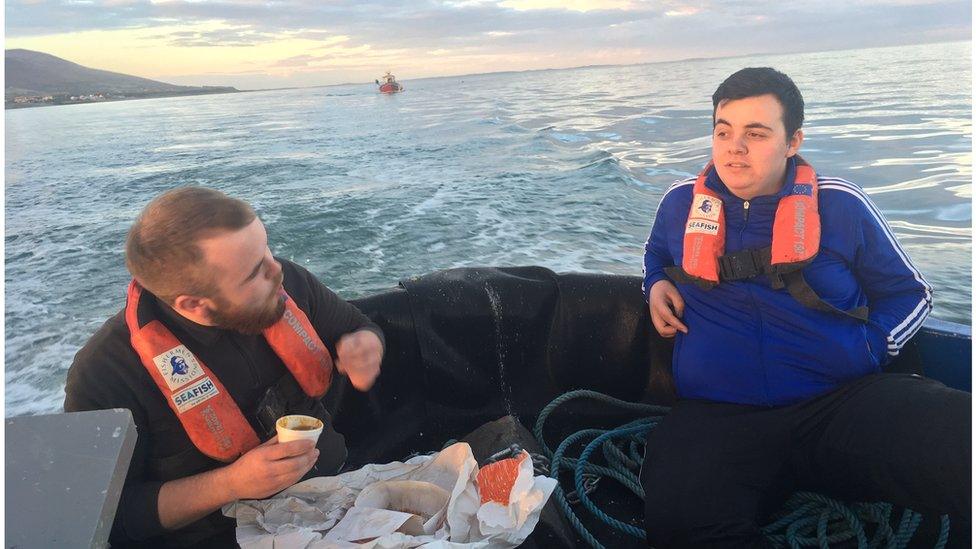
Many see the fishing business as a passion which is in their blood.
"They call it the herring fever," he says.
"It means that once this time of year comes you can't wait to get out.
"And then you are out and you are thinking, 'what am I doing here?'
"It is just something that is in your blood. It's something you grew up with."
'A brutal and filthy spectacle'
By this stage night has fallen, the herring have dropped and our nets are cast.
When the haul comes in the hard work begins.
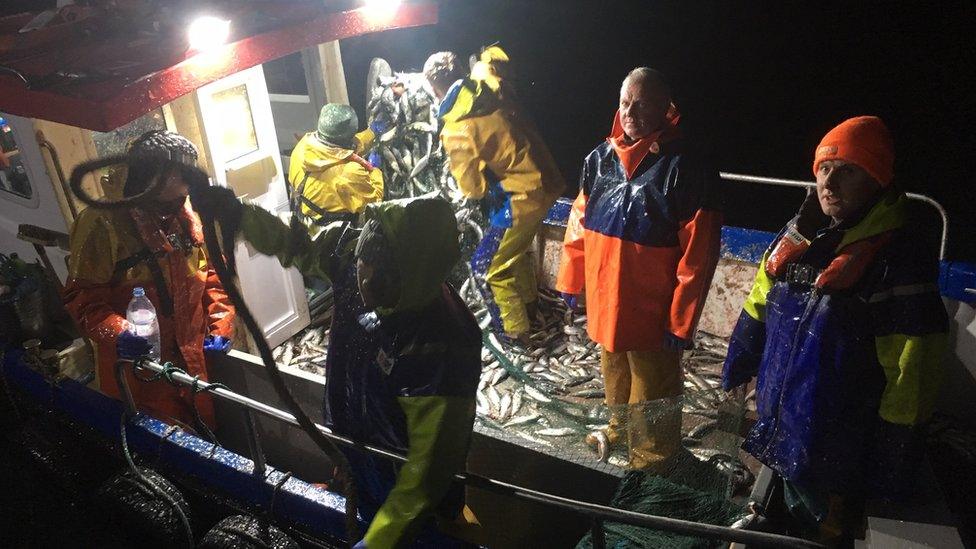
The men have a tough night of work to bring in their haul.
The other boats are also fishing in the same place.
Our nets get tangled with another boat and take time to free.
When they're freed it isn't a case of simply flopping a full net into the hold.
The fish must be vigorously shaken free.
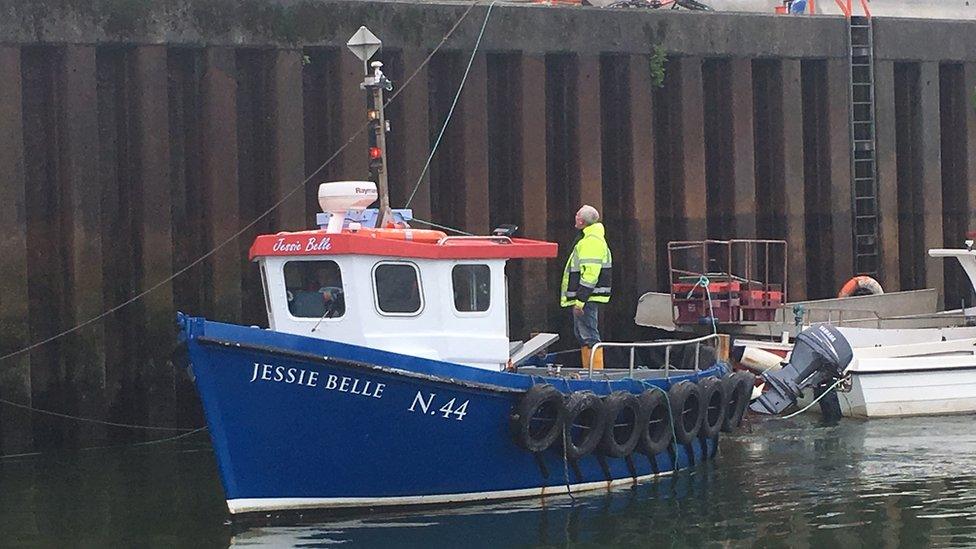
It's a brutal and filthy spectacle. Everyone and everything is covered in scales and guts.
But it's a good haul. With the boat half full at midnight we are left back in to Kilkeel.
The men will go again and won't return until morning.
Then they will take their catch to market.
After that, they then wash down themselves and their boat, go back to their normal jobs and wait until the conditions are good enough to go again, until their quota is reached.
- Published13 December 2017
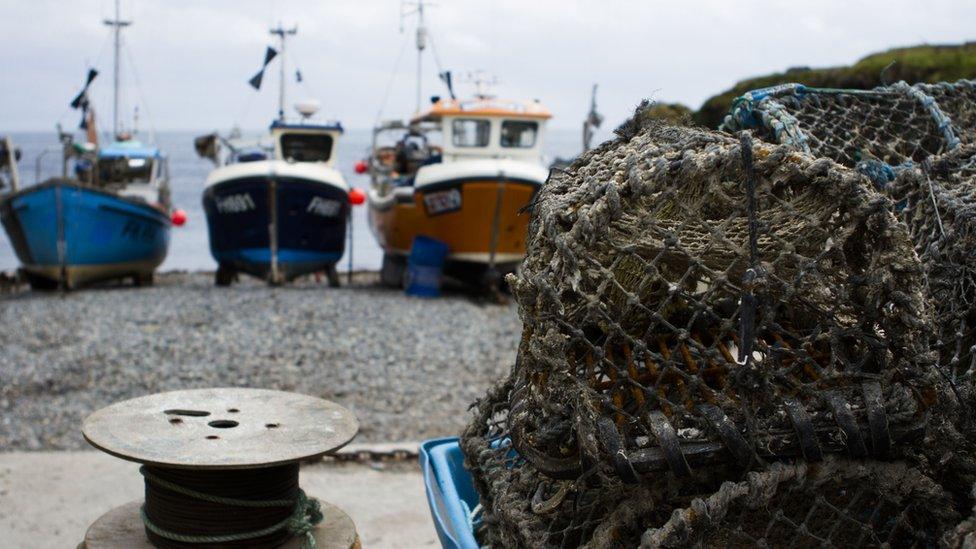
- Published15 September 2018
